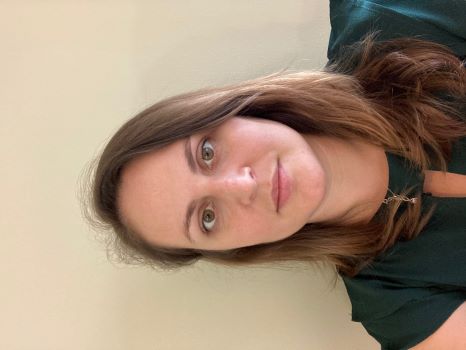by Hannah Buckelew
 Camilla Bell, M.Sc., Ph.D., an assistant professor in the UAB Department of Pathology’s Division of Molecular and Cellular Pathology, has been awarded a grant by Vertex Pharmaceuticals as part of the Research Innovation Award (RIA) for her proposal, “Impact of pathogenic immunity in CF-related diabetes.” Only two of these awards are given annually. This three-year $750,000 award will focus on the pathological immune response in cystic fibrosis related diabetes (CFRD).
Camilla Bell, M.Sc., Ph.D., an assistant professor in the UAB Department of Pathology’s Division of Molecular and Cellular Pathology, has been awarded a grant by Vertex Pharmaceuticals as part of the Research Innovation Award (RIA) for her proposal, “Impact of pathogenic immunity in CF-related diabetes.” Only two of these awards are given annually. This three-year $750,000 award will focus on the pathological immune response in cystic fibrosis related diabetes (CFRD).
The introduction of new therapeutics for CF has greatly improved lung function in eligible patients. However, chronic inflammation and CFRD are still affecting patients with CF in spite of new therapies. Patients with CFRD experience a faster decline in lung function and more frequent exacerbations, beginning up to four years prior to an official diagnosis.
While it is hypothesized that chronic inflammation may play a role in CFRD, the impact remains unknown. The goal of this study is to systematically evaluate the adaptive immune responses in CF and CFRD, determine the impact of metabolic reprogramming on their function in CF, and identify key pathological mechanisms driving the decline in lung function.
The analysis will focus on T and B lymphocytes. The cells will be analyzed using a combination of flow cytometry, metabolic profiling, and CITE-seq combined with TCR sequencing. This will provide a platform to determine the presence of specific subsets of autoreactive cells present in CFRD but not in the control cohorts. The pathogenic cellular responses, as well as antibody-mediated responses, identified in the phenotypic steps will be analyzed in in vitro models and in vivo models of lung-directed autoimmunity.
 Darshan Shimoga Changrashekar, M.Sc., Ph.D., an assistant professor in the UAB Department of Pathology’s Division of Genomic Diagnostics and Bioinformatics, will collaborate on this study to provide data set analysis for comparing inflammation metrics.
Darshan Shimoga Changrashekar, M.Sc., Ph.D., an assistant professor in the UAB Department of Pathology’s Division of Genomic Diagnostics and Bioinformatics, will collaborate on this study to provide data set analysis for comparing inflammation metrics.
“Our ultimate goal is to provide critical insights for the development of therapeutic approaches to treat these patients,” says Bell.